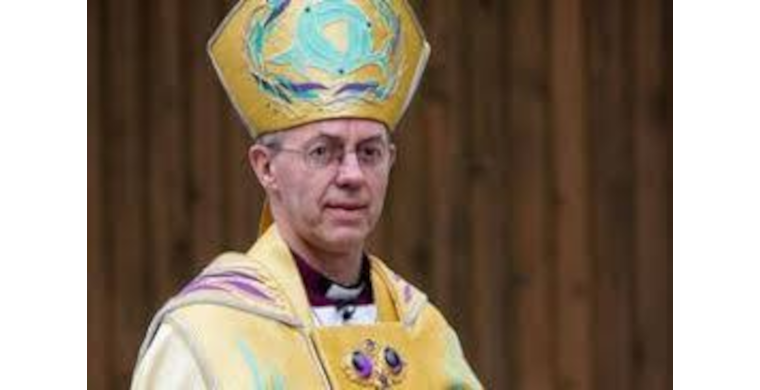"The episcopate is liberal, the flock is not".
EDITORIAL
Church of England Newspaper
November 22, 2024
Justin Welby succeeded Rowan Williams to the globally important See of Canterbury in 2013. Williams had succeeded George Carey, who was a controversial appointment in that the favourite for the post had been John Habgood.
Prime Minister Margaret Thatcher had come in for criticism from the Church over the Falklands war and then Archbishop Runcie's very definite message that national celebration of victory should be avoided on Christian grounds.
In the imagination of many Thatcher was thought to have taken revenge on the liberal tradition in the Church by refusing to accept Habgood as Runcie's successor and choosing the more conservative Carey, a leading evangelical teacher. Carey however later revealed in his memoirs that before he had taken the post he had received reassurances that he was the first choice of the Commission.
Another neuralgic point between Church and state at this time was the Church's Faith in the City report which contained criticisms of the government's social policies. Such issues are thought to have torpedoed Habgood's candidacy, although Carey himself took the liberal path in pressing for theordination of women. Rowan Williams was another controversial appointment, an academically liberal catholic theologian from the Church in Wales, with strong ecumenical links with the Orthodox Church, he backed the ordination and consecration of women, and controversially spoke of Sharia law having a place in British legal institutions.
Justin Welby succeeded a world renowned academic theologian and catholic churchman. He had been Bishop of Durham, Dean of Liverpool and Canon of Coventry where he worked on reconciliation, an issue remaining important to him through all his ministry. His resignation over an association with a man who unknown to Welby was a violent child abuser hiding behind evangelical credentials is a tragic end to his archiepiscopate so keyed in to reconciliation and communal prayer. The deep irony is that the Church of England's 'safeguarding' regulation is very tight indeed, all PCC members must submit the relevant forms to the Archdeacons.
Welby is of the evangelical tradition in terms of piety, but his reputation in the public mind is of a liberal, even 'woke', campaigner. He stresses the theological importance of the green ecological agenda, the diversity and inclusivity agenda, white privilege, the gay and trans progressism, and most recently massive donations from church reserves to reparations for slavery despite historical studies showing how very limited church involvement was and of course how Christianity abolished slavery.
History might say that he was overly open to activists and their causes, causes tangentially linked to Christianity, but failed to analyse such causes theologically. Did he consolidate the domestication of the Church by the state and the many activist groups pressing their agendas?
His handling of the Covid lockdown crisis gives some support to this thesis, he closed the churches at the behest of a power drunk Big Brother government. The public worship of God was cancelled, despite being urged to allow distanced gatherings in church yards, our church was shut for the duration, or until the state told us when we could re open.
Roman Emperors, Nazi and Soviet dictators, had tried to stop Christian worship and failed. This was a surrender to technocracy, 'trusting the science' and notin our revealed faith. And the people got out of the habit of attending church services.
Welby was unlucky in being faced with the gods of Covid. He was also linked to the head of the Post Office, Paula Vennells, when this horrifying scandal was bursting its puss all over the media. She did not respond well and was an ordained minister known to Welby and one whom he had supported to become Bishop of London in succession to Richard Chartres. Likewise the death of HM Queen Elizabeth was a deeply sad event for the nation and for the Church: she had stood up for Christ during the lockdowns with her 'Easter isn't cancelled' word of comfort to the depressed faithful. Our episcopal hierarchy offered no such encouragement.
Welby's tenure has not seen the Anglican Communion overcome its deep split over human sexuality, he is not regarded as safe on the subject by leading African bishops. At home he has not actually permitted gay marriages, but seems to sceptics to be on the brink. As a result he is unpopular with both liberals and conservatives.
The Church of England is declining in numbers and in the sense that it is increasingly unmoored from definite Christian surroundings. And we should remember, as Charles Moore has written, that no charge of improper conduct was proved against him. He is a victim of the regulatory system he so supported.
Dr Welby cannot be blamed for the parlous state of the established church's elite management. That resembles the structure of the Conservative Party, which advertised itself as culturally conservative but deep down was 'heir to Blair'.
The episcopate is liberal, the flock is not. The recent declaration that rural Anglicans are racist per se is yet another genuflexion to the catechism of identity politics, and a wounding slur permitted by the elite management. The successor to Dr Welby must be a talented and learned priest, anchored in the Trinitarian Christological faith, confident in stating that faith and explaining it without apology. Appeasing the secular ideologies of the day must be resisted by the next Archbishop with assisted dying and the trans attack on the distinction of men and women very much being pressed on the Church.
END














